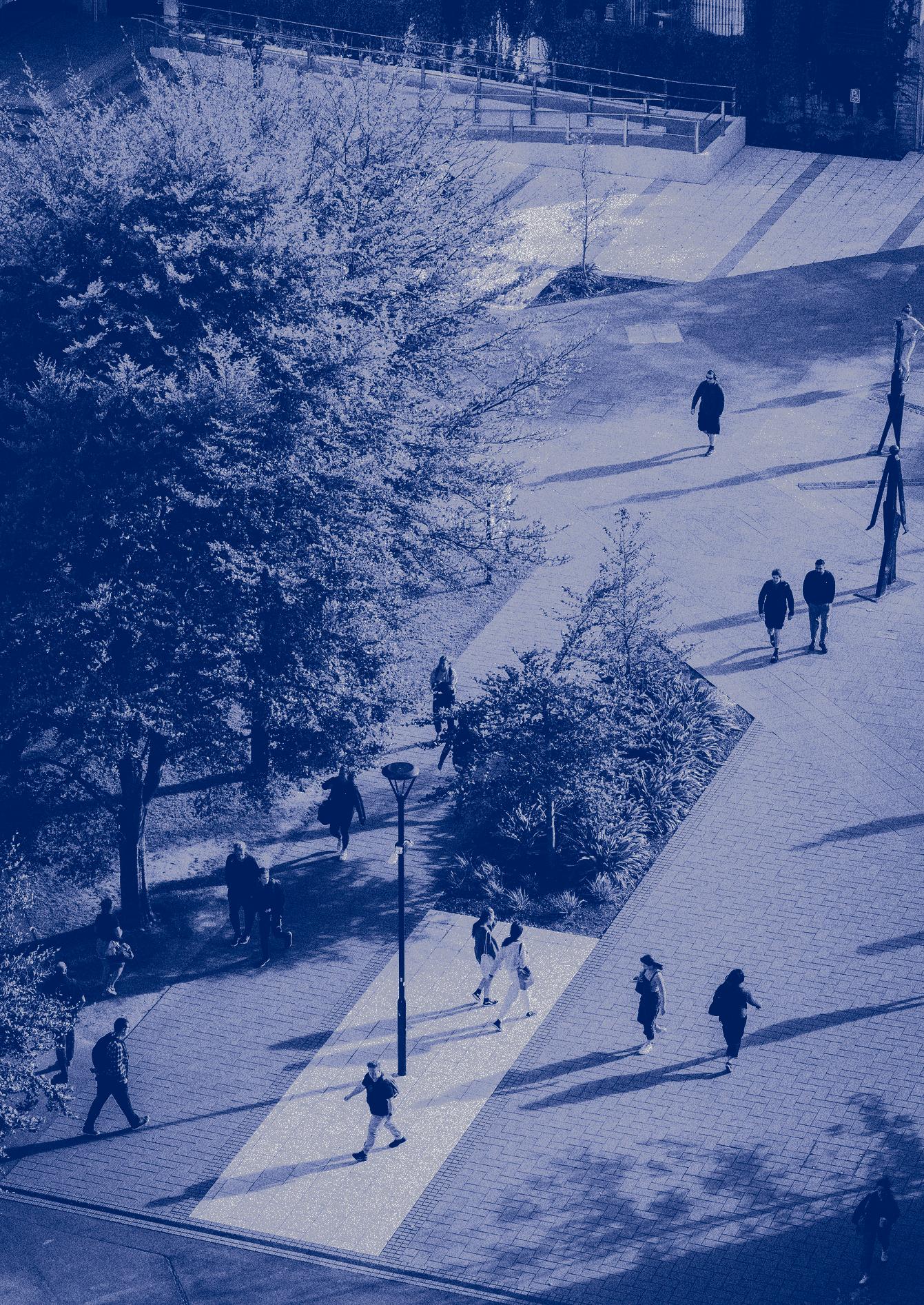Te Pānui Taura

This issue: Exercise for anxiety, Helping a ‘tiny little island’, A pressing future & more!


This issue: Exercise for anxiety, Helping a ‘tiny little island’, A pressing future & more!
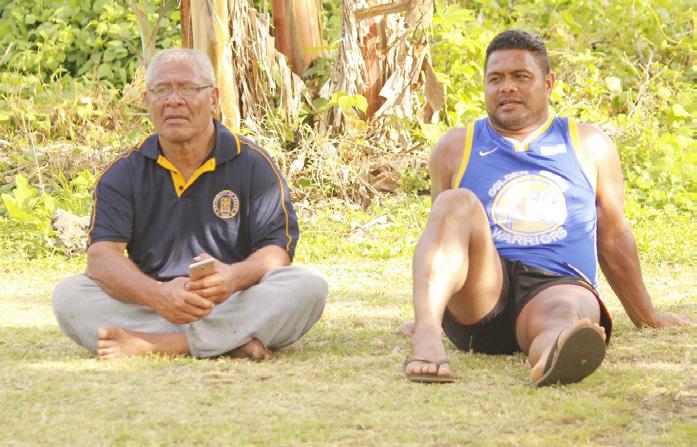
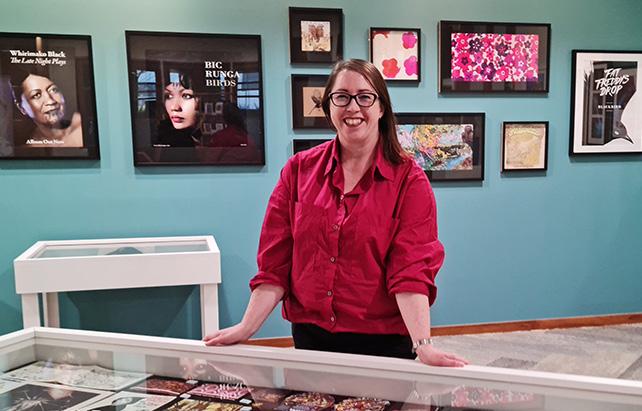
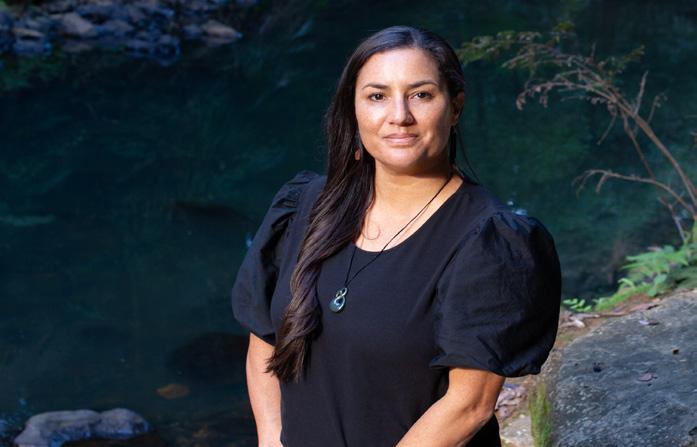
Jekope Maiono made a promise to his grandfather that he would be the first in their family to get a university degree.
For Amanda Mills – Curator Music and AV at the Hocken Library – every month is NZ Music Month.
One of the first tricks Miranda Chetham (Ngātiwai, Ngāti Whātua, Ngāpuhi) learnt at the outset of her online Master of Sustainable Business degree, was to artfully dodge meteorological chat.
A newborn, new clinic service and new qualification
The legacy of a nuclear-free Pacific
A pressing future
3MT heats coming up
Calendar
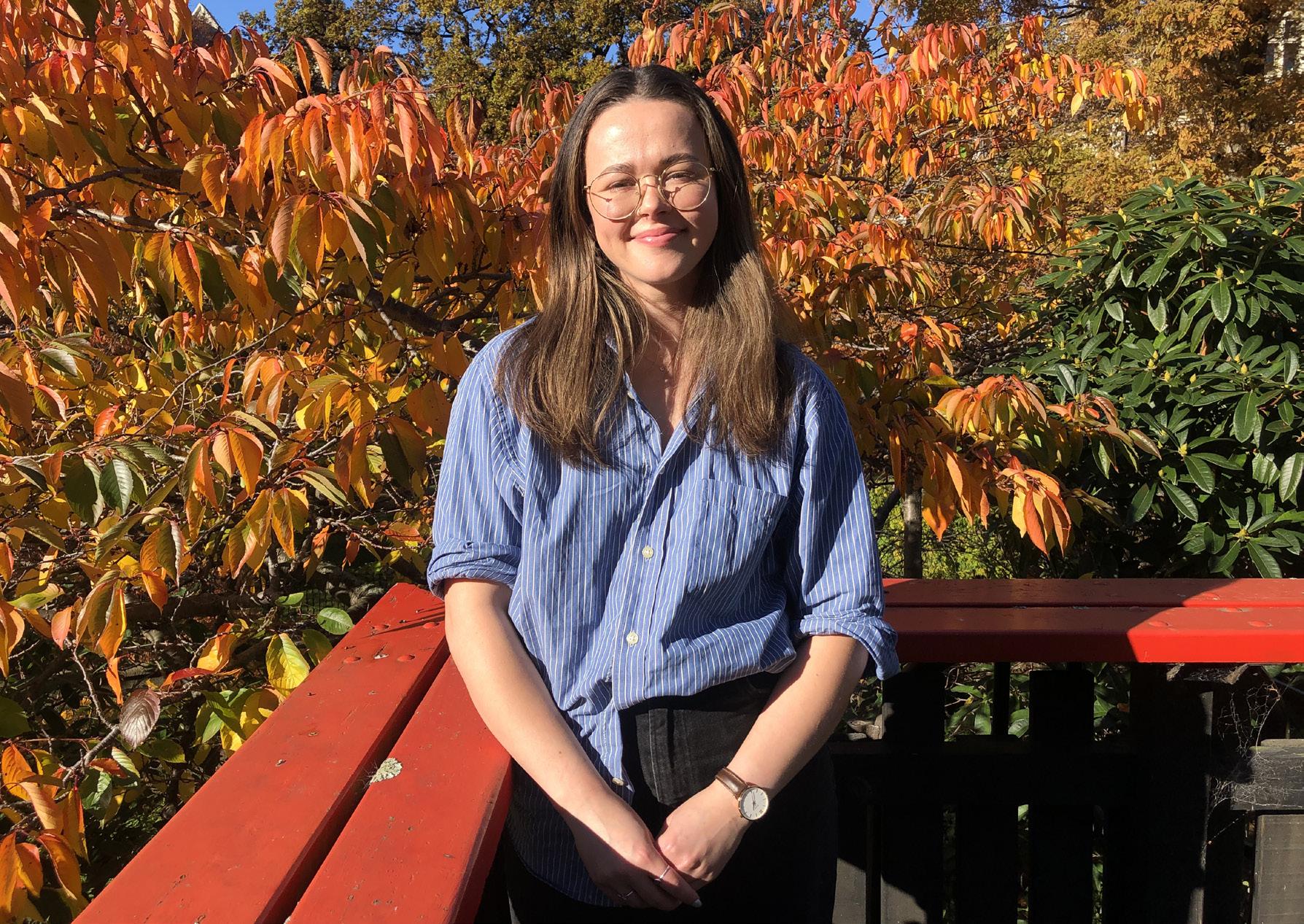
It’s well known that physical activity is good for mental health, but does that mean getting your heart rate up or taking it easy with a stretching session?
That’s what PhD candidate Maddie Connor, of the School of Physical Education, Sport and Exercise Sciences, is hoping to find out with her research on the effect of exercise on anxiety.
“I’ve always been quite interested in physical activity for mental health. Growing up, I was quite anxious myself and I found physical activity was a way for me to help manage my own anxiety,” she says.
“One thing I want to do is nail down what we can do with that exercise to make it the most beneficial.”
Maddie’s PhD research is expanding on her honours project which showed people felt better after just one bout of exercise.
“From that project we saw that people did feel significantly better. They had less anxiety after
they’d done just one bout of exercise which was really promising to see.”
This time round, her participants will be exercising over eight weeks. Maddie is hoping to recruit 70 participants who will partake in either aerobic exercise or a session of stretching.
“What we want to look at is if you need that aerobic component, like if you need to head out for a run and increase your heart rate, or if you can just have a good stretch and that will have the same effect,” she says.
Maddie is also interested in whether the different exercise techniques can help you feel better in different ways. By understanding this, she feels that we could be more informed when advising people how they might be able to use different types of exercise to help manage their anxiety, saying that “it would be really great to get an idea about what kinds of exercise people can be doing to help”.
Many people experience
anxiety, she says. The people she recruits for her study will have moderate to high levels of anxiety but not necessarily a diagnosed anxiety disorder.
“I’m hoping that through looking at exercise we can help give people the tools to help manage their own anxiety and use things like exercise to help themselves feel better. Importantly, we are hoping to give people more autonomy over what they’re up to within each category of exercise, so that they can learn to listen to their bodies and what they need.”
Maddie says she isn’t looking at what level of intensity has the best effect, but which parts of exercise influence a reduction in anxiety. She also notes that this is not intended to replace any medical assistance that people may need to help manage their mental health, but one helpful tool for people to have in their toolkit.
“We’re looking at how people are able to tune into their bodies and how worried they are about their symptoms.
See full story online.
Jekope Maiono made a promise to his grandfather that he would be the first in their family to get a university degree. Jekope fulfilled that promise when he finished his Bachelor of Commerce in management in 2013. Since then, he has gone on to complete a Master’s degree in sustainable business and a Post Graduate Certificate in health sciences.
And this Saturday, Jekope will cross the stage at the Dunedin Town Hall for the fourth and final time to collect his PhD in Sustainable Land Development in Fiji, rounding out 13 years of studying at Otago.
Jekope came to Aotearoa New Zealand from Fiji in 2006 to play rugby for a team based in Lawrence, South Otago. He had “never heard of Otago University”.
“But after a couple of years, I realised that I’m in a unique situation, which was personal. I made a promise to my grandfather to be the first in my family to finish a degree.”
Jekope believes there are people who will carry you through different phases of your life.
“There are people that came through my life that opened those doors for me, they come and tell you ‘you actually can do it’.”
He’s the first person from his home island of Cikobia on to go to university.
“When we sit around our dinner table, when we have a village gathering, we don’t have a doctor there. We never knew that these people do exist in our space.”
Moving to Ōtepoti, he found himself surrounded by academics every day.
He’s grateful to Professor Sara Walton and Associate Professor Diane
Ruwhiu for telling him he could complete a PhD.
“They opened those doors, they enabled me.”
The three years during which he completed his PhD were “never easy”, he says.
“It was probably one of the intense moments of my life, it tested every aspect of me. It redefined who I am, I see things differently.”
Many aspects of his life, including family life, were tested, he says.
“People around you start to look at you differently because you start to frame yourself in a way that ‘this is something that I want to do’. And in order for me to achieve this, you have to say no to things to be something that you want to be. And that wasn’t easy.
“I guess I’m blessed to be in a position where I am today, with so many people who helped me along. And I want to be that person who also gives back.
His ties to Cikobia have remained strong, despite moving to Aotearoa. In the past 13 years, Jekope has returned home several times to help the village, which he based his master’s and PhD research on.
“If I can be of help to only a small group of people from where I come from, then I think I fulfilled my life goal in this world.
“I don’t have to save the whole world, just this little, tiny island in the middle of the Pacific Ocean.”
The Otago Bulletin spoke with Jekope when he completed his master’s degree in 2017 when he was working to get a jetty and shed built at his home village Vatulele, on the island of Cikobia.
Jekope followed that project
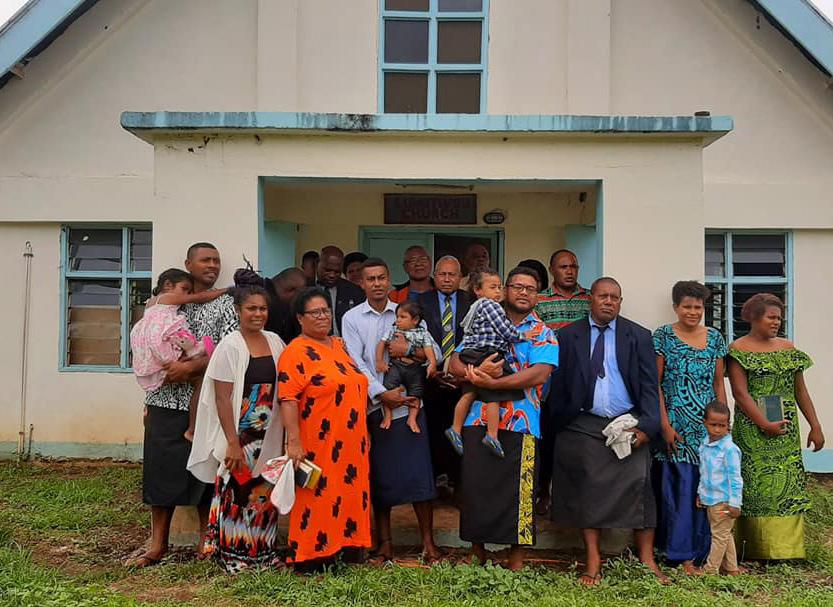
through to completion and since then he’s helped organise the planting of thousands of pine trees.
He was also instrumental in securing funding from United Nations Development Business to install 17 water tanks because “they desperately need water supply”.
He says eventually everyone will have their own water tank at their house.
He encourages the people of his village to look at the land and see how much has changed in the past five years.
“The changes are slowly happening. In the next five years from now, you see those pine trees, they’ll become big trees.”
So far, he says, things have been moving “in the right direction”. The community is in a good position because it is starting from scratch.
Village elders asked Jekope to come up with a way to enhance
sustainable livelihood in the village, and he used that opportunity to educate himself.
“That is part of the reason why I go on and study and do the masters, do the PhD. I believe that if I can look after me, look after my knowledge base, I’ll be in a really good position to make some tangible impact on the people of the land.”
Jekope wants to not only help his community in Fiji live sustainably but also look at ways they can use their natural resources such as coconut crab, prawns, sea cucumber and fish in a more sustainable way. That is, not just “harvesting anything that they can” but harvesting only what they need.
Jekope has also spent a lot of time changing the community’s mentality around the formalisation of social structure.
“In the Fijian context, there are already existing social systems that are established within villages,
but in order to leverage that you need to use those social systems as a business structure so that the community can be recognised by government agencies, funding agencies, financial institutions.”
Jekope handed his PhD thesis in in July 2023.
He has held the role of the University’s Pacific Island Student Support Facilitator for five months now.
He is writing an indigenous business case for the business school, to better explain things students should consider before conducting business with people from the Pacific community such social capital and whanaungatanga - forming relationships which are “fundamental”.
“I think that is the challenge that we face at the business school, is that we do not have a Pacific business case, a Māori business case or an indigenous business case available.”
For Amanda Mills – Curator Music and AV at the Hocken Library – every month is NZ Music Month.
“But Te Marama Puoro o Aotearoa New Zealand Music Month is an especially good opportunity to focus more deeply on the music collections at Hocken,” she says.
To mark the month, Amanda has created a special foyer display highlighting cover art from local and national music scenes and musicians.
“The title of the display, ‘He Autaia, He Ātahu Strangeness and Charm: Album Cover Art in Aotearoa’, came about after looking at these covers and seeing that some had a more conventional attractiveness, while others had an otherworldliness, or sometimes even a discomfort, that was hard to look away from,” Amanda says.
The foyer display features covers of sheet music, posters, vinyl discs (12”, 10” and 7” discs), CDs and cassettes.
There are examples that have DIY art, including origami, right through to fold-out vinyl covers that have been professionally designed.
“They are all incredible and interesting works, but one particularly special item includes the original collage by John Collie, used for the cover of Straitjacket Fits’ ‘Hail’ album. Collie was the band’s drummer and is a visual artist. The collage was gifted to Hocken Collections in 2023. Also, there are some 45rpm discs by musician Dick Whyte that feature prints or hand-painted images as their covers, which are very beautiful.
“Many personal favourite covers are in there, including beautiful portraits of Bic Runga, Te Kaahu, and Jonathan Bree, as well as hand-drawn ghost cats on a Ladyhawke single. The cover of Patea Māori Club’s ‘Poi-E’ album is still a stunning image. Everyone loves to see that one displayed.”
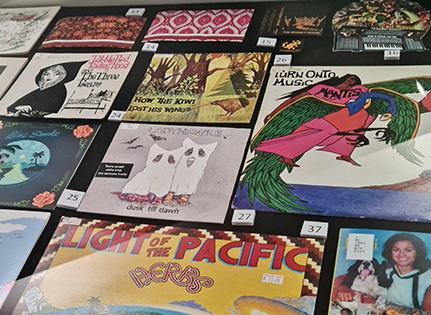
Amanda has also written a panel to accompany the display that talks about the theme and some of the cover art that has been included.
“These works are portraits, imagined worlds, and documents of real events. They show landscapes, birds, and animals. They reflect the impact of popular culture and literature, draw on history and politics, and show the ever-shifting perspectives of identity through music and art.”
The Hocken holds a wealth of material relating to music and music-making in Ōtepoti Dunedin and wider Aotearoa New Zealand across all the collections, including the recorded music and sound collections, Amanda says.
“I recently gave a Music Month talk on the Hocken’s music collections, which I could happily do again. I’ve also created a Hocken Collections Spotify playlist that features tracks from most of the recordings that are in the display, which can be found here.”
The ‘He Autaia, He Ātahu Strangeness and Charm: Album Cover Art in Aotearoa’ display is free to view for the month of May in the foyer at the Hocken Library at 90 Anzac Ave. Further information about all of the Hocken’s collections can be found here.

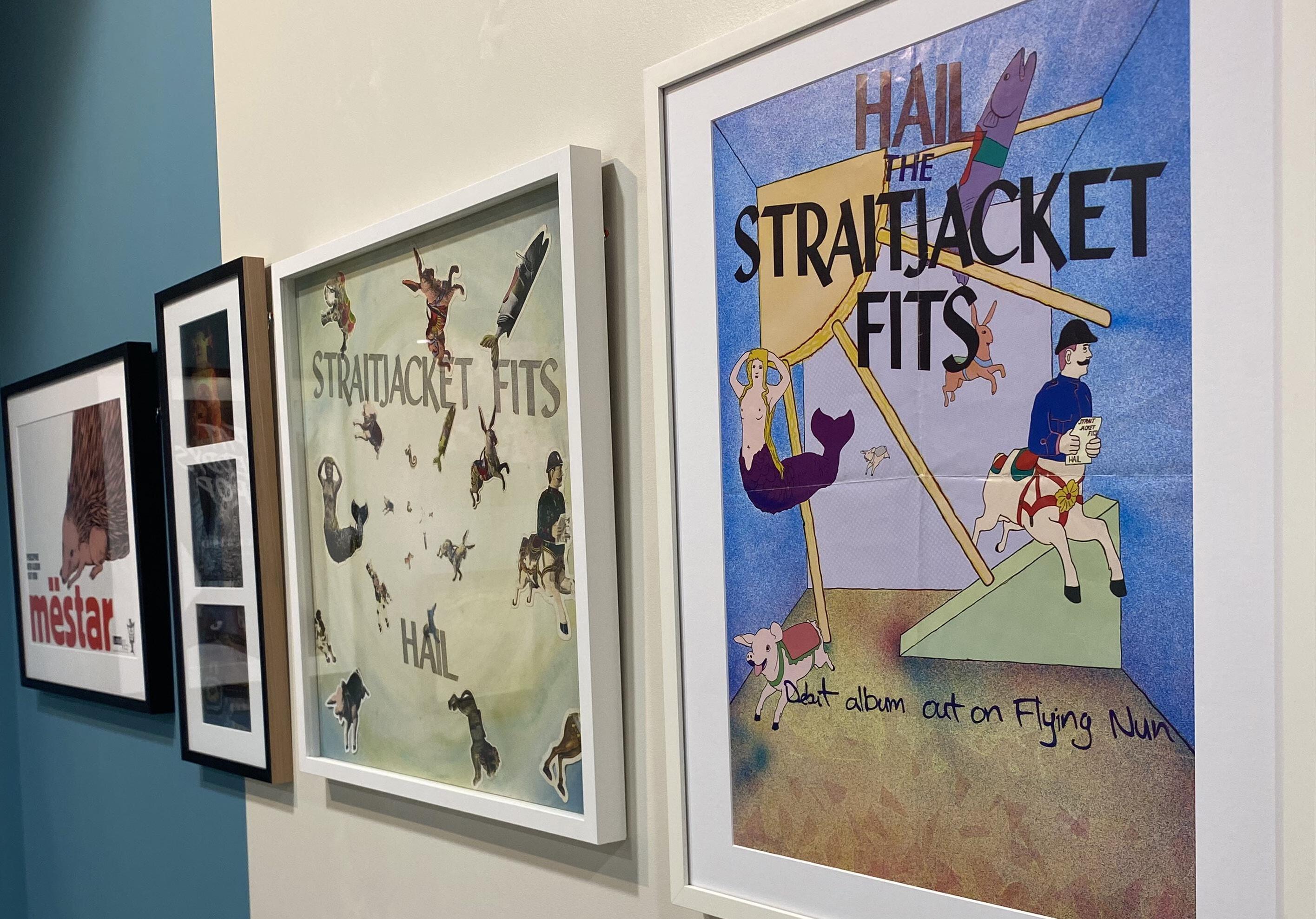
September 30, 2023 was scheduled to be a big day for Dr Gerard Farrell. His PhD was due, his scholarship finished and it was close to the due date for his wife to give birth to their third child.
It’s fair to say, the months leading up to that date were a juggling act.
But now seven months later, having graduated with a PhD from the School of Physiotherapy, his whanau now a happy family of five and even having established and opened a new dysautonomia service, Gerard shares some tips learnt along the way.
A strong work ethic and even stronger support network were key.
“I needed a plan for this to be achievable and I’m very grateful to my wife Nicole, her parents, and our wider family for their help.
“I couldn’t have done it without them, along with the support of my Primary Supervisor Associate Professor Steve Tumilty and team at the School of Physiotherapy clinics, both past and present.
“I would seriously encourage others headed down the same path to make sure they have a strong support network.”
Some mornings he would need to be at university by 4am to be back home for 6am “dad duties” and some nights he would need to return to work later in the evening
after putting his kids to bed, but it was those choices that helped him reach his PhD milestone in time for his son’s birth.
“With the support of the Stanley Paris and Catherine Patla Scholarship and Otago PhD scholarship, I could afford to treat the PhD like a full-time job which was so appreciated because it can be easy to get distracted with life’s other demands, especially doing it over six to eight years part-time.
“I would encourage others in similar situations to stick to their workload for about four to five ‘power hours’ a day where it’s just you focusing on what needs to be done.
“I would seriously encourage others headed down the same path to make sure they have a strong support network.”
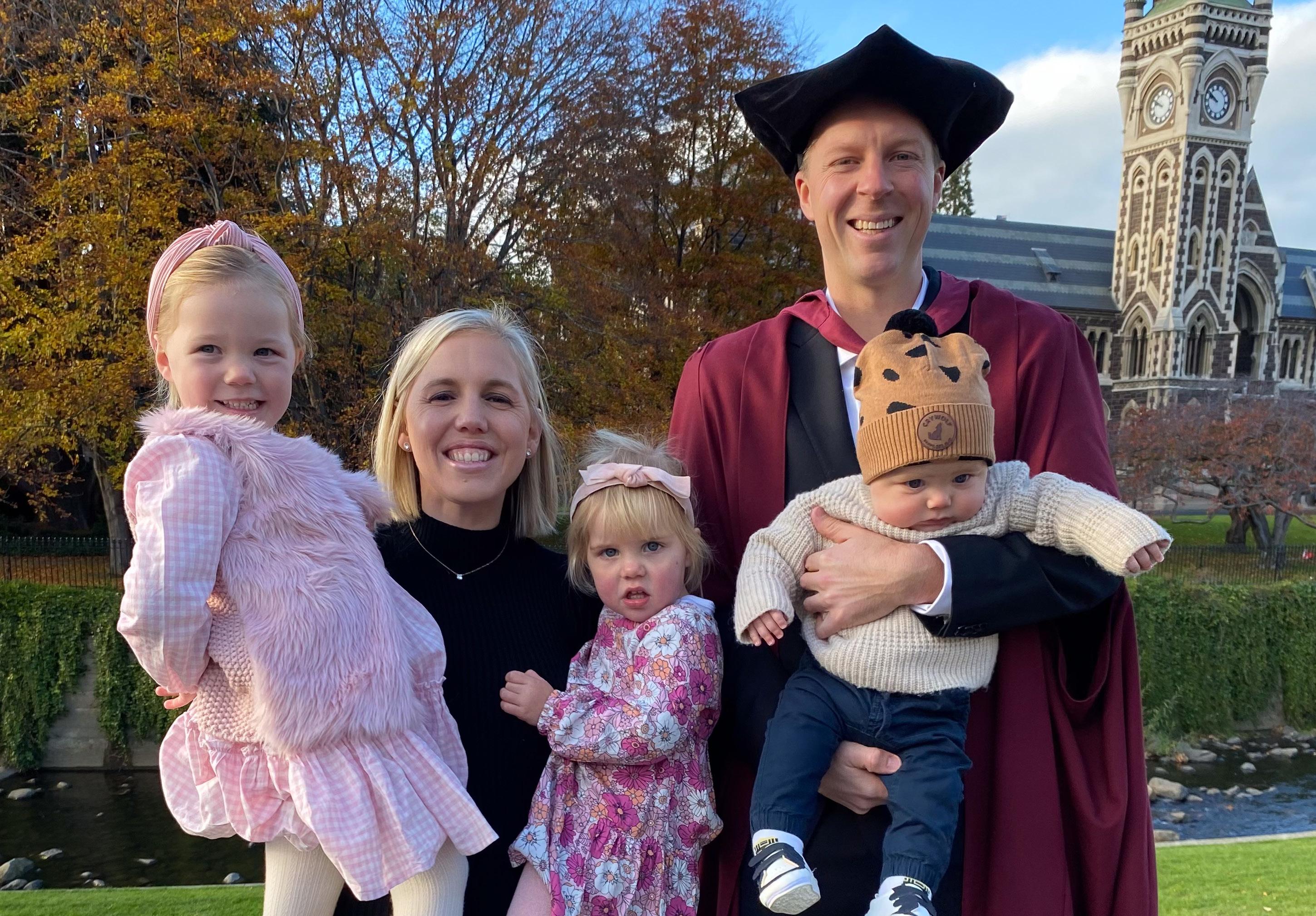
“Then, when you do go home, make sure to leave the work behind and be present with those around you as best you can.”
Gerard considers doing his PhD a privilege as it gave him the opportunity to learn from others and dive deeply into subject matter that really interests him.
For him this was investigating the mechanisms of manual therapy on the human stress response.
This means looking at the physiology behind what happens when people are injured and how post-injury symptoms could be improved by physiotherapy techniques.
His research unpackaged why physiotherapy interventions might work, how they can be used selectively to improve patient symptoms, and how this can be adjusted to cater to patient needs.
He found understanding this approach does improve people’s health, particularly the health of post-concussion patients, which led to him reaching out to Dr Julia Collett from Student Health with the idea of setting up a dysautonomia service.
Dr Collett and her colleagues were exploring options to help patients with these complex symptoms and so it was good timing all round, though the final name for the service is still up for discussion Gerard says.
“Dysautonomia is a blanket term for a disorder that affects a person’s autonomic nervous system, among other systems because they are all interlinked, leading to a variety of signs and symptoms, such as dizziness when changing position, brain fog, headaches.
“My PhD looked at one part of this system but, when I started ex-
trapolating it out, my interest grew and so I got into contact with Julia.
“We started looking things like hyper mobility, long COVID, headache populations, chronic fatigue syndrome, fibromyalgia, and from there the idea grew.
“We started getting referrals of patients and now were starting to open up to the whole of Dunedin.”
The conditions and unique presentations are not straightforward and are very patient-specific, so the presence of a dysautonomia service will not only support the complex needs of the patients but also normalise their experiences, he says.
General advice can go a long way when someone is facing things like dizziness every time they stand up or persistent brain fog and he plans to do the best he can for his patients.
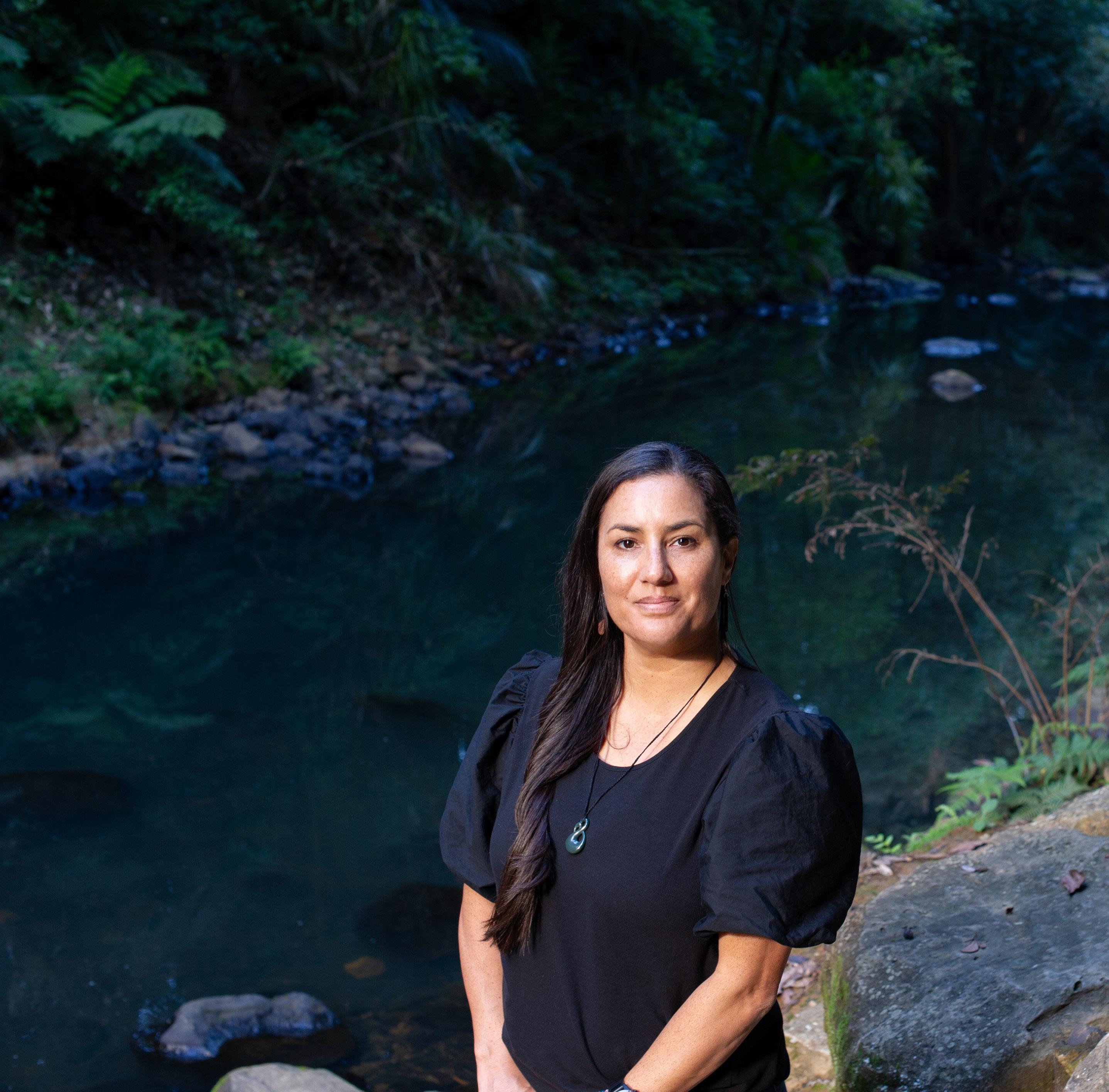
Miranda Chetham: do the mahi, get the treats
One of the first tricks Miranda Chetham (Ngātiwai, Ngāti Whātua, Ngāpuhi) learnt at the outset of her online Master of Sustainable Business degree, was to artfully dodge meteorological chat. It wasn’t a course requirement – just a courtesy measure to play down the temperature-superior climate of her study location in Te Tai Tokerau/Northland.
Miranda completed her studies by distance from her home in Whangārei, where she lives with her husband and two young daughters.
When asked if undertaking a degree at Otago without ever having to don a puffer jacket was a bit like cheating, she says she quickly mastered the unspoken protocol around weather sharing.
“If it was sunny in the winter months and anyone at Otago asked about the weather, you’d just say nothing – lest you fall out of favour with your cohort or lecturers. You could only to talk about the weather when it was disgustingly hot (above 30 degrees). That was acceptable because it showed you were suffering.”
Miranda’s decision to pursue a deeper study of sustainability was a natural continuation of the knowledge her father Frank imparted about Te Ao Māori throughout her upbringing.
“He was a true eco warrior and likely my greatest influence. We’d go on walks through the native bush, and he’d talk about ecosystems and tikanga. I wanted to elevate those childhood learnings and add value through my career in a new way – one that aligned more closely to who I am.”
Miranda came to tertiary study as a mature student after many years in senior executive support and project management roles.
“I got to a point where I thought, I need to contribute in a new way. I decided it was time for me – I needed to prioritise myself.”
ity, but we all walked away from it shocked. It was so inspiring. What a powerhouse.”
She heaps praise on other Otago staff too: Associate Professor Diane Ruwhiu (“What an amazing wāhine – so clever”); Dr Mawera Karetai (“She provided me with an angle that aligned with my childhood”); and Dr Joe Cooper (“He was brilliant at simplifying things and stopped me from going down rabbit holes”).
Miranda is now using her postgraduate degree in her role as Organisational Development and Sustainability Manager at McKay –an electrotechnology company in Whangārei that offered unwavering support throughout her study slog.
“Businesses are a really significant and influential contributor to communities and the environment. I want to be a change agent that supports business in embracing sustainability so that it helps people and the planet.”
“I got to a point where I thought, I need to contribute in a new way.”
When Miranda graduates in Dunedin on 18 May, it’ll be a celebration of her academic achievement and a salute to the mum-work-study juggle that got her there.
She says the ability to work fulltime and be with her whānau in Whangārei while completing her postgraduate studies at Otago, was invaluable.
“Sometimes when I was listening to lectures, I’d have a small person on my lap colouring in or asking me to do noughts and crosses with her. Or my youngest daughter would have a meltdown and need cuddles. My Otago lecturers were really understanding – they were like, hey, life happens.”
She began her ‘me time’ with a Bachelor of Applied Management degree from Otago Polytechnic (also completed online from Whangārei). She then searched for a way to deepen her interest in sustainability and strategy while keeping a Te Ao Māori lens to the fore.
A conversation with Professor Sara Walton (Department of Management) was enough to convince her that the Master of Sustainable Business programme – with its emphasis on how to manage organisations while maximising social outcomes and minimising impacts on the natural environment – was the perfect fit. The programme allowed Miranda to honour and extend her Frank-led childhood learnings.
“Sara is so passionate about sustainability and so humble. Her first lecture – oh my gosh. I thought I knew a fair bit about sustainabil-
She can’t say enough about the people in her Te Tai Tokerau circle who buttressed her throughout her studies.
“Support from your village is critical. My incredible husband, Daan, moved mountains to help juggle children and life to allow me the time and space to pursue my studies. My friends and colleagues were an absolute lifeline too.
“Probably the biggest learning was that it’s amazing what you can achieve when you start believing in yourself. It’s held me back from pursuing higher education previously.
“Having that village support is critical. There was lots of ‘mum guilt’ but I also thought, hey, I’m doing this for my whānau and setting a really good example for my daughters – if you do the mahi, you do get the treats.”
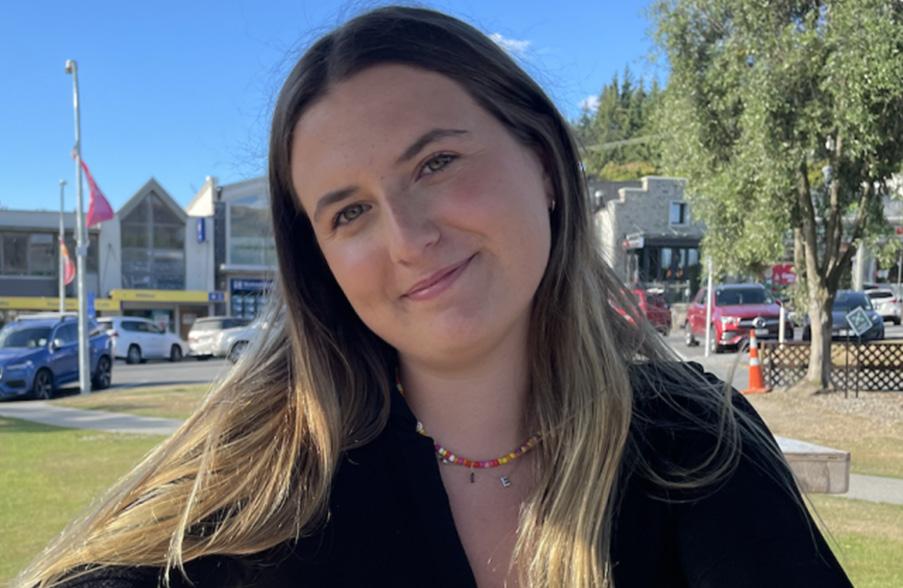
Elspeth Hallett has been awarded a School of Arts Faletufuga Research Prize, recognising her work as a third-year student last year.
This award is for her research essay titled “‘Ki Te la Pacific! Get out of the Pacific!’: How was the Treaty of Rarotonga achieved and has it continued to achieve a nuclear-free Pacific? What impact did it have on Oceania’s relationship with colonisation and imperialism?”
It was written for the History paper “Empires Strike Back: A Global History of Decolonisation”. Elspeth says the paper, taught by Associate Professor Miranda Johnson, made for an interesting semester.
“It covered a range of colonised nations and their subsequent progress in decolonisation. I highly recommend taking this paper.”
See full story online .
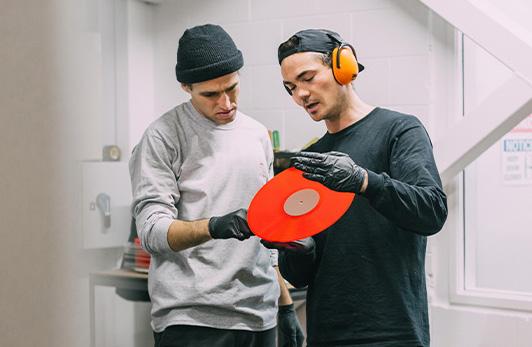
Frustrated at not being able to produce his own record, Otago alumnus Ben Wallace joined forces with university friend Joel Woods to create a record company (Holiday Records).
After six months’ training in Canada, the pair imported a record press from Canada and went into business in 2018. Harnessing their skills in business and design they set up the first vinyl record pressing plant in New Zealand since the 1980s and at the time only the second in Australasia (there are now five record pressing plants).
From Taupō (attending Taupō-nui-a-Tia College), Joel had never been to Dunedin, but was drawn south by his love of skiing and a desire to sample its famous student life. Otago was also unique in offering design and marketing courses.
See full story online .
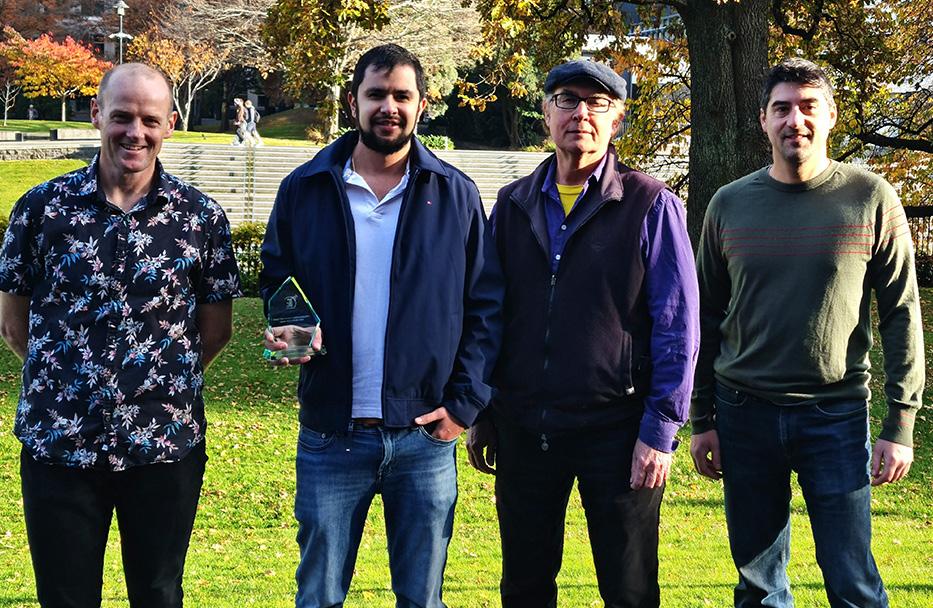
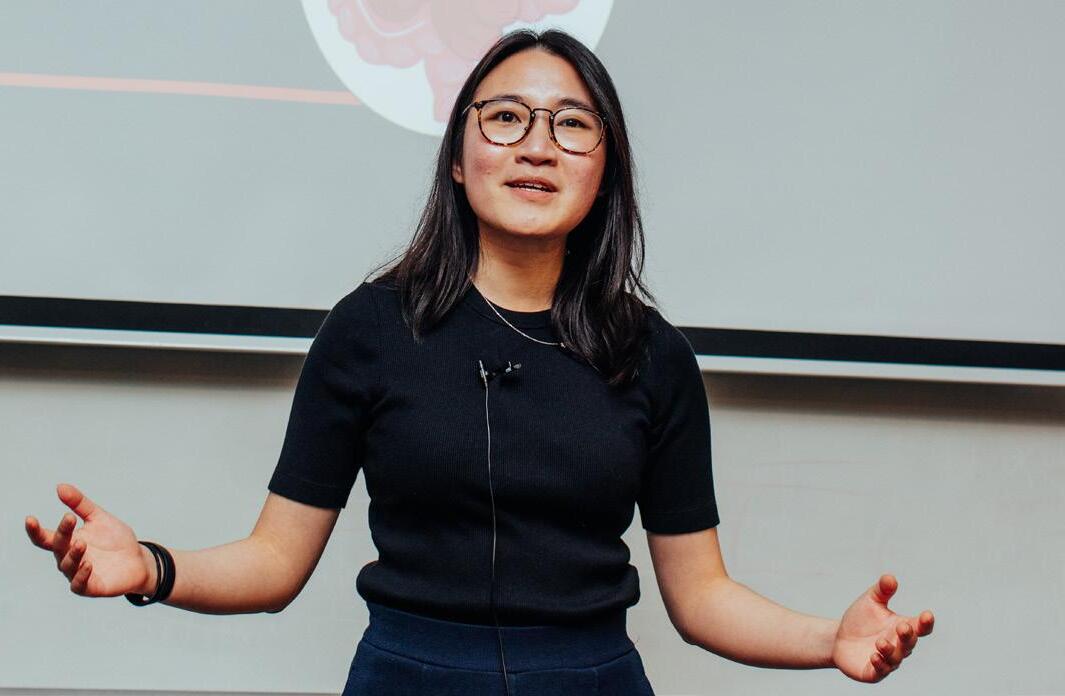
An innovative approach has helped an Otago team land first place in the Space for Planet Earth Challenge.
The challenge has two category winners – a university/startup level and a high school level – and is open to individuals and teams in New Zealand, Australia and the Pacific Islands. It aims to use space technologies to find new and innovative solutions to address climate change issues in Australasia.
Taking out the university/startup category for Otago was a team from the School of Computing and the School of Surveying led by PhD candidate Cristhian Camilo Delgado Fajardo and supported by Professor Peter Whigham, Associate Professor Grant Dick and Associate Professor Pascal Sirguey.
See full story online .
It’s that time again... Three Minute Thesis (3MT) heats will be kicking off in July.
Head along and support your fellow postgraduate students as they race the clock while giving a presentation on thier area of research.
Humanities Divisional Heat – Tuesday 2 July 10am, Burns 7
Health Sciences Divisional Heat – Wednesday 3 July 10am, OBS Room 1.17
Commerce Divisional Heat – Thursday 4 July 10am, OBS Room 1.17
Science Divisional Heat – Friday 5 July 10am, St David Lecture Theatre Complex, Room G.02
